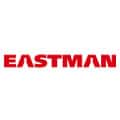 Today, with higher living standards and more diverse materials, brand values and philosophies can be communicated to consumers through packaging. Materials with unique artistic taste and visual impact help products stand out. And with the growing global circular economy, the market urgently demands green packaging that complies with higher environmental standards.
Today, with higher living standards and more diverse materials, brand values and philosophies can be communicated to consumers through packaging. Materials with unique artistic taste and visual impact help products stand out. And with the growing global circular economy, the market urgently demands green packaging that complies with higher environmental standards.
Market trends in the packaging industry
Plastic waste from packaging is an issue of increasing global concern. To create a future where plastic never becomes waste, Europe has adopted several initiatives to drive toward sustainable packaging. These initiatives include the European Green Deal, the Packaging and Packaging Waste Directive (PPWD), the Waste Framework Directive (WFD), the plastic levy for the European Union, and the Plastic Packaging Tax in the U.K.
Some nongovernmental organizations like the Ellen MacArthur Foundation are taking a more significant role in pushing this global transformation even faster. The Ellen MacArthur New Plastics Economy Global Commitment has already mobilized more than 500 signatories that are determined to start building a circular economy for plastic, including packaging that is 100% recyclable, reusable, or compostable by 2025.
According to a recent study:
- 74% of consumers are willing to pay more for sustainable packaging.1
- 57% are less likely to buy products in packaging that harms the environment.1
- 62% of consumers indicate that companies should do more to ensure their packaging is recyclable and minimize their impact on the environment.2
- 59% believe companies that fail to ensure their packaging is recyclable and minimize overall environmental impact should be financially or legally penalized.2
1Boston Consulting Group study with Trivium Packaging Sustainability | Trivium Packaging New Report Finds Overwhelming Majority of Global Consumers Are Willing to Pay More for Sustainable Packaging | Trivium Packaging
2Adweek in collaboration with Morning Consult poll results
These actions and attitudes are essential to support and move the packaging industry toward a sustainable transformation.
Challenge of packaging industry
To achieve this sustainable goal without sacrificing the effect of unique packaging, brands are looking for an alternative packaging solution that eliminates laminated plastic film on the package exterior. This plastic film is difficult to recycle and generates unnecessary waste and pollution at the end of its life cycle through incineration and landfilling.
Innovative material solution for sustainable packaging
To reduce the plastic footprint and make sure 100% of packaging is recyclable without compromising quality or shelf appeal, Eastman worked with value-chain partners to accelerate the transformation of fully recyclable, film-free transfer metallized packaging (FFTMP) based on Eastman Solus™ cellulose ester technology. This can fulfill the needs of laminated packaging users without plastic lamination. Brands are left with a lighter-weight, recyclable package that delivers the same luxurious appearance.
Thanks to sustainably sourced Eastman Solus technology, packaging that features holographic or luxurious metallic effects can be directly repulped to make new paper. By applying Eastman’s sustainable material solution, even transport impacts can be reduced because up to 10% of the total weight of the packaging can be eliminated.

Joint success for sustainable packaging transformation
As a signatory of the Ellen MacArthur New Plastics Economy Global Commitment, Eastman is working with global, leading brand owners in the cosmetic and healthcare industries to take real actions to contribute to a greener future. For more details, please read these success stories on LinkedIn:
- Eastman cellulose esters enable GSK to move to sustainable packaging.
- Beiersdorf works with Eastman to make sustainable packaging for NIVEA.
Founded in 1920, Eastman is a global specialty materials company that produces a broad range of products found in items people use every day. With the purpose of enhancing the quality of life in a material way, Eastman works with customers to deliver innovative products and solutions while maintaining a commitment to safety and sustainability. The company’s innovation-driven growth model takes advantage of world-class technology platforms, deep customer engagement, and differentiated application development to grow its leading positions in attractive end markets such as transportation, building and construction, and consumables. As a globally inclusive and diverse company, Eastman employs approximately 14,000 people around the world and serves customers in more than 100 countries. The company had 2021 revenues of approximately $10.5 billion and is headquartered in Kingsport, Tennessee, USA. For more information, visit www.eastman.com.







